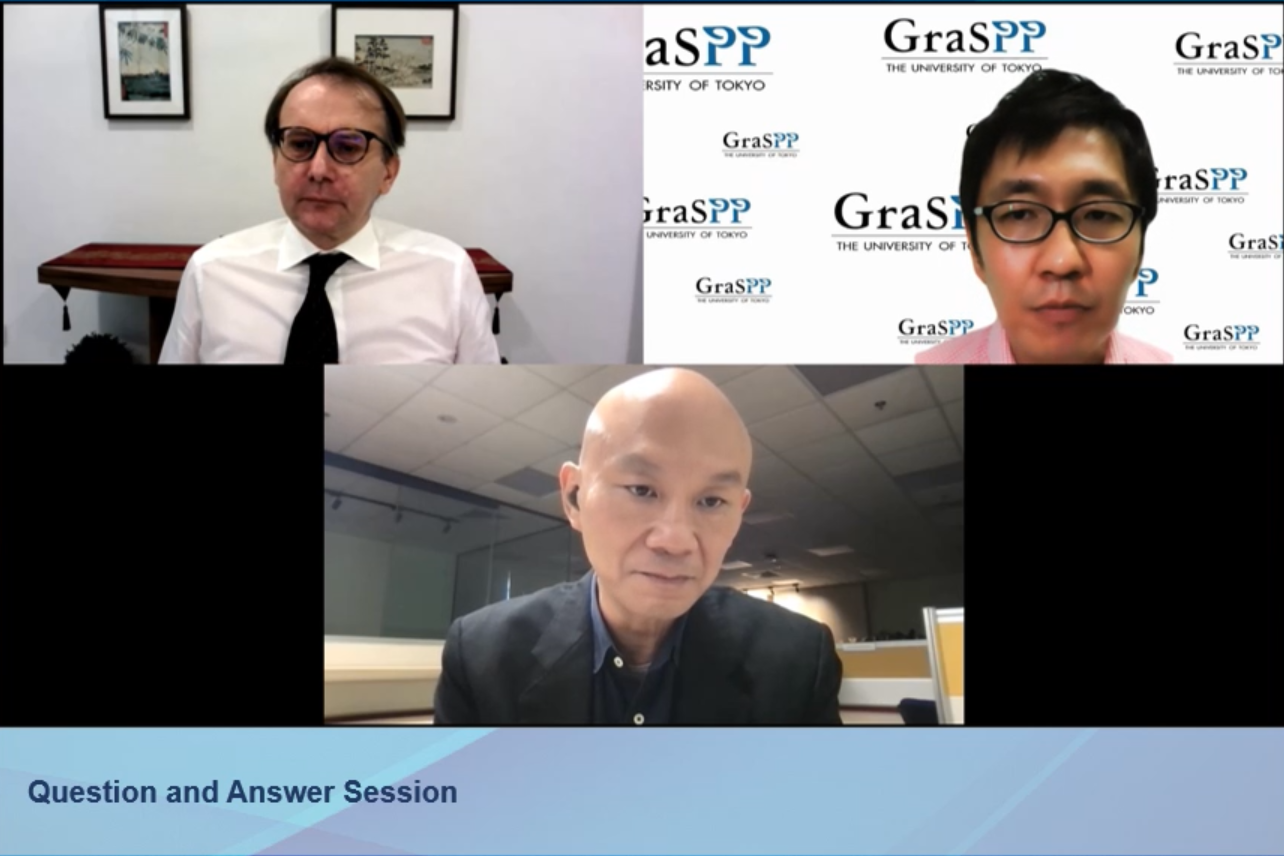

A webinar on “Nuclear Governance in the Asia Pacific: Pathways to Cooperation” was organised by the Centre for Non-Traditional Security Studies (NTS Centre) on 29 July 2021. On the webinar programme were presentations aimed at exploring key nuclear safety, security and non-proliferation issues in the Asia Pacific, as well as the multiple pathways towards enhancing nuclear governance. These included national actions, bilateral cooperation, ASEAN-led frameworks, and bottom-up approach involving NGOs, educational institutions and Track II networks. Around 80 participants attended the webinar.
Chaired by Professor Mely Caballero-Anthony, Head of NTS Centre, the webinar featured nuclear governance experts from selected Asia-Pacific countries, namely, Dr Trevor Findlay, Principal Fellow, School of Social and Political Sciences, University of Melbourne; Dr David Santoro, President, Pacific Forum; Mr Tom Corben, Research Associate, United States Studies Centre; Dr Hosik Yoo, Vice President, Korea Institute of Nuclear Non-Proliferation and Control; Dr Zha Daojiong, Professor, School of International Studies, Peking University; Dr Masahiro Okuda, Engineer, Integrated Support Center for Nuclear Non-Proliferation and Nuclear Security (ISCN), Japan Atomic Energy Agency (JAEA); Ms Naoko Noro, Chief Training Instructor, ISCN, JAEA; and Mr Julius Cesar Trajano, Research Fellow, NTS Centre, RSIS.
Nuclear governance in the Asia Pacific and civilian nuclear cooperation among states are crucial to the safe, secure, and peaceful use of nuclear energy and technology. Apart from strengthening energy security through nuclear power plants, the panellists noted that many countries have turned to nuclear technology in addressing non-traditional security challenges such as climate change, food security, water security, health security, and environmental security, among others.
In this regard, the speakers pointed out that nuclear safety, security and safeguards (3S) have been included in ASEAN’s political and security agenda. Nuclear safety and security have also been included in areas of cooperation within the framework of the East Asia Summit. Closing the debate, the panellists argued that while nuclear governance covering the 3S remains a state responsibility, cooperation among states as well as multistakeholder participation involving civil society organisations, universities, and centres of excellence, would be critical in enhancing nuclear governance in the Asia Pacific.
Catch it here on the RSISVideoCast YouTube channel:
























